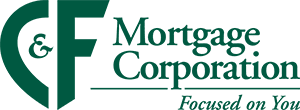What Is PITI and Why Is It Important?
The journey to becoming a homeowner may seem a little intimidating, especially with all of the terminologies you have to learn as you go along. Fortunately, having a great lender in your corner means you’ll have guidance every step of the way! With that said, there are several acronyms that you’ll find sprinkled throughout your homebuying experience, and below, we’ll discuss one important term: PITI.
What Is PITI?
Your monthly mortgage payment is comprised of PITI, which stands for Principal, Interest, Taxes, and Insurance. These four elements combined are what you pay monthly when you obtain a mortgage on a home. All of these are considered by your lender when determining how much home you can afford since they are all required expenses.
Let’s Break It Down
Now you know what PITI stands for, but you may still be wondering what it means. Wonder no more!
Principal – The principal on your mortgage is the total amount you owe on the home, broken down into monthly payments. If you purchased a home for $350,000 and made a $50,000 down payment, your principal amount will be $300,000. This total will be amortized over the life of the loan, and it starts smaller but will eventually make up the largest portion of your mortgage payment as you pay down the total balance.
Interest – When you apply for a mortgage, your lender will provide an interest rate for your loan based on the current market rates. The interest rate is the cost your lender charges for borrowing money over the life of your loan. Interest will be the biggest chunk of your monthly payment in the beginning, but will decrease over time as you pay down the principal amount. There are also two types of mortgages – fixed-rate and adjustable-rate. Fixed-rate means your interest will remain the same percentage until you pay off the loan, and adjustable-rate mortgages can vary with market fluctuations.
Taxes – Taxes are an inevitable part of homeownership, but the amount will vary based on the home’s location. You’ll pay state and local taxes, which can change annually based on your home’s valuation and tax rates in the locality. For this reason, your monthly mortgage payments can increase or decrease depending on your annual tax assessment.
Insurance – While not technically required to own a home outright, homeowners’ insurance IS required if you’re taking out a mortgage to pay for your home. Homeowners insurance protects you and your lender financially in the event an accident or disaster occurs that renders your home uninhabitable. Insurance rates can vary based on your coverage details and the area in which you live. Another form of insurance that may apply to you is PMI or private mortgage insurance. If you take out a mortgage and put down less than 20%, you’ll be required to pay PMI.
Your taxes and insurance are paid to your lender monthly as part of your mortgage payment and are typically held in an escrow account to be paid out annually (or semi-annually) by your lender. If your taxes or insurance amount changes, your lender will recalculate your monthly mortgage payment and communicate the changes ahead of time to you.
How PITI Determines Your Home Budget
Even though only your principal and interest go to your lender (and taxes and insurance go to separate entities), all four elements are factored into your home budget since they are all mandatory. The cost of the home is very important to your overall budget, but keep in mind that taxes and insurance will vary and can impact your bottom line.
At C&F Mortgage, our focus is on you and your home buying experience, from start to finish and every step in between. Get connected with our local industry experts today to learn more about the mortgage process and begin your journey to owning a home!

